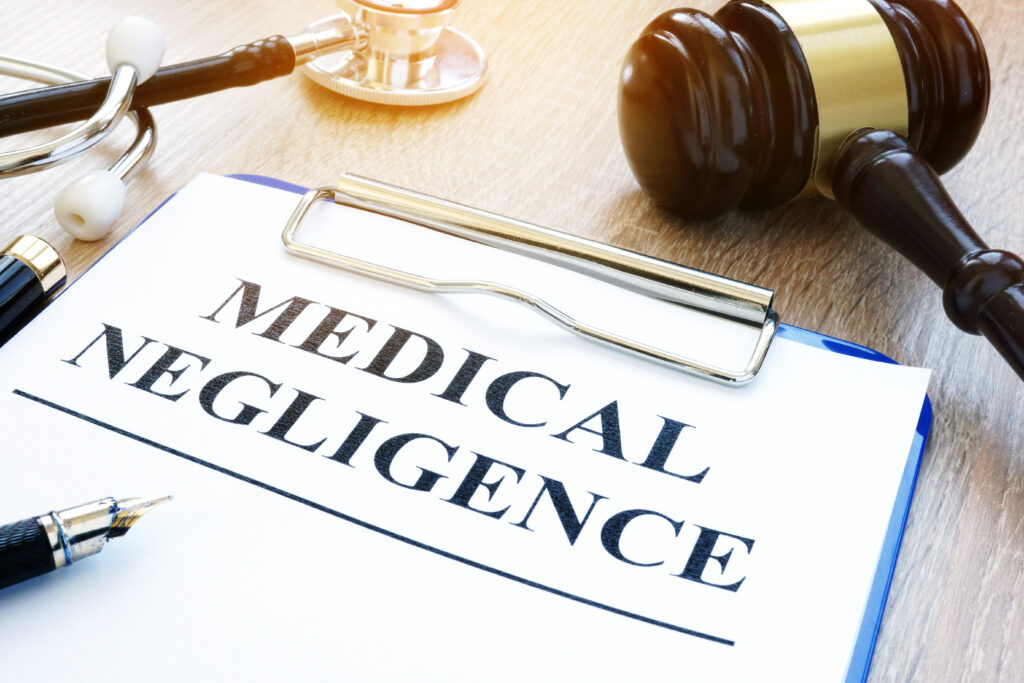Medical negligence occurs when a healthcare provider fails to deliver the standard of care expected in their professional duties, leading to harm or injury to the patient. This can manifest in various ways, such as misdiagnosis, surgical errors, medication mistakes, or inadequate patient management. When such incidents result in significant consequences, it may be appropriate to seek legal recourse to address the grievance and obtain justice.
Read on to learn how to prove medical negligence with the assistance of a medical malpractice lawyer.
The Role Of A Medical Malpractice Lawyer
Navigating the intricacies of Pharmacy Malpractice and Medication Errors demands a high degree of specialized knowledge and experience that only a seasoned medical malpractice lawyer can provide. These professionals play a crucial role in determining whether a case is legally viable by conducting thorough evaluations of the circumstances surrounding the alleged negligence. They’re adept at gathering and analyzing critical pieces of evidence, consulting medical experts, and building a compelling legal strategy.
This meticulous preparation is essential for effectively presenting the case in court. With their expertise, medical malpractice lawyers ensure that all procedural and substantive legal standards are met, significantly enhancing the chances of a favorable outcome.
For victims pursuing accountability due to medical negligence, partnering with a skilled attorney ensures that all legal aspects, from procedural requirements to intricate medical and legal intersections, are thoroughly addressed.
Ways Of Proving Medical Negligence
Proving medical negligence is an intricate task that involves showing that healthcare providers violated the applicable standard of care. The following are the crucial steps to be followed to constitute a successful medical malpractice claim:
Determine A Duty Of Care
The initial step to establish medical negligence is to indicate that the healthcare provider owed a duty of care to the patient. This is generally presumed under doctor-patient relationship, where it entails providing an acceptable level of care by the medic.
Demonstrate A Breach Of Duty
Once duty of care has been established, plaintiff must prove that this duty was breached through either action or inaction which didn’t conform with accepted medical practices. In demonstrating what standard of care wasn’t met, expert testimony usually from doctors working within similar specialized area is vital.
Prove Causation
Another essential part is establishing how directly breaking the rule by provider led to injury. This implies indicating that the provider’s actions were responsible for causing harm or deterioration in health status. It’s often difficult to prove causality since one will have to link fault with consequences in clear cut manner.
Record The Damages
The final element involves quantifying the damages resulting from medical negligence. This includes physical injuries, emotional distress, loss of income, and future medical costs. Comprehensive documentation and expert witnesses can help substantiate these claims and establish the extent of compensation required.
The Importance Of Expert Witnesses In Medical Malpractice Cases
In medical malpractice lawsuits, expert witnesses are indispensable for their deep understanding of healthcare standards and practices. These professionals elucidate complex medical issues for the court, clearly defining the appropriate standard of care under which the defendant should have operated. Their authoritative testimony is essential in helping the jury grasp subtle medical nuances and how specific deviations from established care protocols can lead to patient harm.
By systematically breaking down the expected practices versus the observed failings, expert witnesses can highlight the direct link between professional negligence and the resultant patient injuries, thus playing a critical role in shaping the outcome of the trial.
Gathering and Managing Evidence
In medical malpractice litigation, the robust management of evidence is paramount to constructing a compelling case. This involves a detailed collection and thorough analysis of medical records, witness statements, and other pertinent documents. A medical malpractice lawyer collaborates closely with a team of medical experts, forensic investigators, and other relevant professionals to meticulously compile and interpret this evidence.

Their combined efforts ensure that every piece of information is scrutinized for relevance and accuracy, fortifying the case’s foundation. This strategic evidence management is crucial in ensuring the evidence supports the claims effectively, which maximizes the likelihood of a successful legal outcome.
The Legal Process And Settlement Negotiations
There’s a complexity and lengthiness of the legal path in medical malpractice cases. At first, it begins with filing a lawsuit, followed by the discovery phase, where exchange and examination of evidence happens.
Trial preparation and trial itself are complicated stages that require careful legal tactics as well as planning. Yet many suits are often settled before they go to trial. There are settlement negotiations at different stages of the case which help avoid uncertainties in trials.
A skilled attorney who specializes in medical malpractice can make all the difference during negotiations by employing their expertise to secure a fair settlement that compensates justly for damages suffered and guarantees the client’s interests are taken care of effectively and speedily.
Conclusion
Proving medical negligence involves a multifaceted approach that includes establishing a duty of care, demonstrating a breach of duty, proving causation, and documenting damages. By keeping the information mentioned above in mind, victims can navigate the legal system, utilize expert testimony effectively, and strive for a resolution that acknowledges their suffering and loss.















